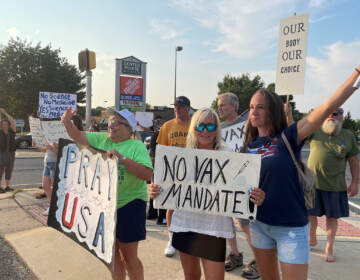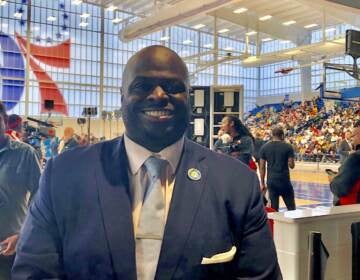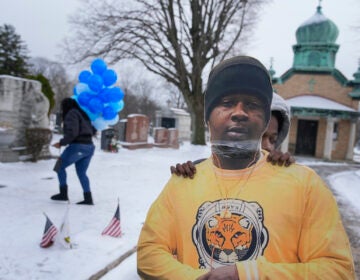Wilmington woman’s relentless quest to hold police accountable for killing Black men
Keandra Ray got involved in demonstrations after city cops killed her brother. Now, she’s advocating for other victims of police deadly force.
Listen 3:18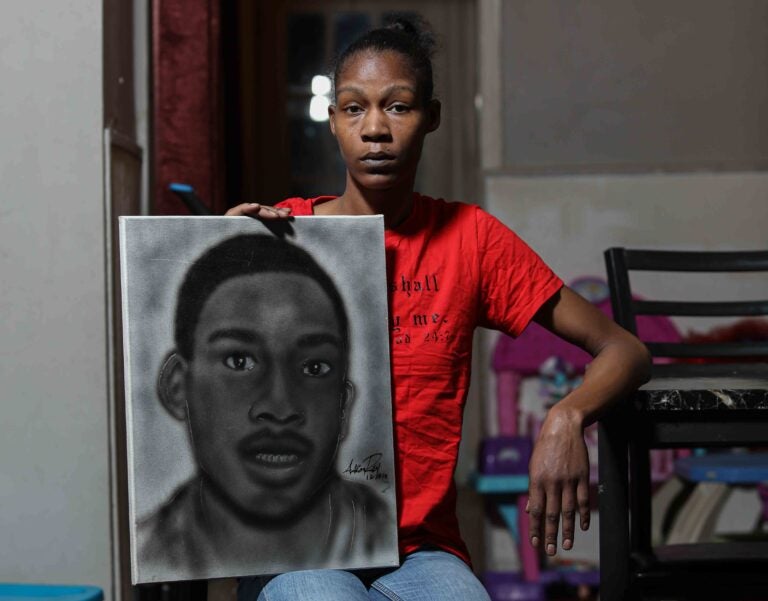
Keandra Ray stands at the spot where her brother Jeremy McDole, who was shot to death by police on Tulip Street in 2015, on Feb. 6, 2020, in Wilmington. (Saquan Stimpson/WHYY)
“Kathy, do your job,’’ Keandra Ray yells through a bullhorn on a recent Sunday afternoon, repeating the exhortation for hours on a quiet street in the Highlands, Wilmington’s most affluent neighborhood.
“We don’t want to see your crocodile tears. We just want you to do your job. That’s it.”
Kathy is Kathy Jennings, Delaware’s attorney general.
And Ray is the tall, thin woman camped outside her home with a perpetual cigarette dangling from her fingers. Ray has been joined at Jennings’ house by about a dozen other protesters on three occasions this summer.
Their mission at those demonstrations has been singular — to get Jennings to file criminal charges against the two unidentified New Castle County police officers who shot Lymond Moses to death earlier this year in Wilmington’s Riverside area.
Police have said Moses drove directly at them before they fired. Moses’ family and attorneys claim police overreacted when he drove in their direction, but not at them, while trying to evade arrest. The family has filed a federal lawsuit over the January shooting.
Ray didn’t know Moses’ family before he was killed. But she has a personal stake in holding police legally accountable for what she considers criminal use of lethal force. Her brother, Jeremy “Bam Bam” McDole, was killed by Wilmington officers as he sat in his wheelchair during a standoff in September 2015.
The city of Wilmington settled with McDole’s family for $1.5 million in 2016, but that has not deterred Ray from continuing to press authorities to charge at least one of the Wilmington cops for shooting her brother within a few seconds of rushing to the scene being managed by other officers he did not supervise. McDole was Black and paraplegic. The officer who fired first, now-retired Senior Cpl. Joseph Dellose, is white.
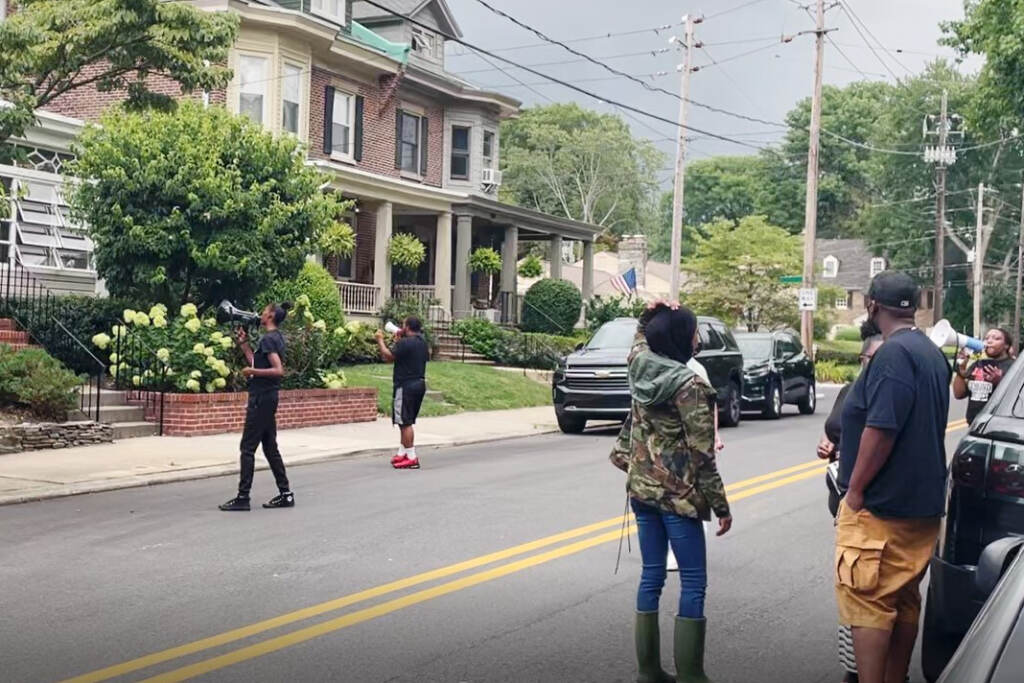
Beyond camping out in front of the attorney general’s house, Ray led protests last year over police violence against Black men, demonstrating in downtown Wilmington and at Mayor Mike Purzycki’s home, also in the Highlands. Ray also met with Jennings at her office in an effort to get her to reopen the investigation into her brother’s killing, to no avail.
One could even argue that Ray’s advocacy played an indirect role in changing the law governing police use of deadly force.
For more than 70 years, a so-called “subjective” standard allowed officers to simply claim they feared for their life or someone else’s when they fired their weapon. That allowed Dellose to escape prosecution for shooting McDole, according to a scathing report by then-Attorney General Matt Denn’s office.
Ray’s call for a stronger statute was featured in a June 2020 WHYY News story that documented how the law has been a key reason that no Delaware officer has ever been charged with shooting a suspect. (At that time, Ray used her family surname, McDole.)
Jennings circulated the WHYY article among lawmakers to build consensus for changing the law to a so-called “objective” standard — what a “reasonable” officer would do in a similar situation. Her proposal passed in the Legislature in June, eroding a legal shield that officers have used for decades to escape the possibility of prosecution.
Ray takes little solace in the law’s change, however. It won’t be retroactive to the 2015 killing of her brother, nor will it affect the review by Jennings’ office of this year’s fatal shooting of Moses.
“What they say is change is not change to me because it still gives the officers leeway to kill people and get away with it,’’ she told WHYY this month outside Jennings’ home. “They still can wiggle around that law. It still gives the officer enough say-so to say that they feel fearful for their lives so they can get away with it.”
‘I don’t want my kids to have to do what I’m doing’
So why does the 33-year-old persist in her quest to hold police accountable?
After all, she does have two young children, and is running a T-shirt business while pursuing a college degree so she can be a youth counselor.
“I just want for things to change, things that should have changed like decades ago, probably before I was even born,’’ she said after having a discussion with city police who wanted her to stop using her megaphone in Jennings’ neighborhood.
“I just want for Black people to be able to live and not have to worry about if they’re going to come home every night to their kids. I don’t want my kids to have to do what I’m doing today. You know, I want them to be able to concentrate on life and be kids and then be adults. I don’t want to have to worry if something’s going to happen to them.”
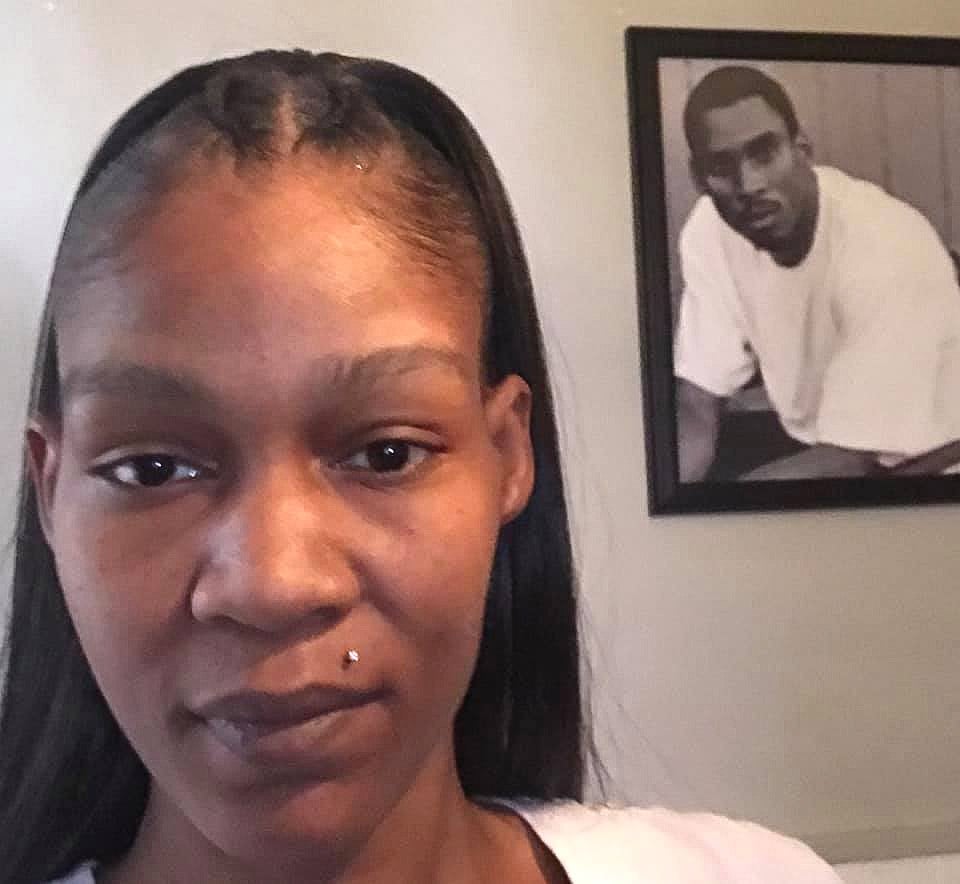
Jennings wouldn’t agree to an interview or discuss Ray’s advocacy directly but said in a written statement that she unconditionally supports “free speech, lawful protest, and peaceful civil disobedience. That includes protests directed at our office and yes, even demonstrations outside my home.”
Jennings also said that being scrutinized and criticized is part of the territory as the state’s elected attorney general.
“The majority of activists are just trying to do justice in whatever way they can,’’ Jennings said. “I’m not here to police anyone else’s grief. These families have a right to be angry. I feel empathy for them. I wouldn’t wish what they’ve gone through on anyone, and the tragedies they’ve experienced are why I push for change.”
‘We need more voices. We need more Keandras’
Ray’s work is lauded by Moses’ widow, Amanda Spence, who has also participated in the actions outside Jennings’ home. Moses was Black, and the officers who shot him were white.
The mild-mannered Spence praised Ray’s booming voice and relentlessness, even if law enforcement authorities might not appreciate her style.
“It does become intimidating,” Spence told WHYY. “And people, they don’t like that per say, but it’s not troubling at all. I think this is what is needed. We need more voices. We need more Keandras.”

Spence noted that “some people may be scared to speak or say the things that she says” but “nothing is disrespectful to anyone. She knows how to tone it down.”
She considers Ray a mentor in pushing for police accountability.
“I appreciate her being out there with me because you know, it’s well-needed. They need to get charged for these kinds of things and we need to be able to live in peace out here. So, Keandra, I’m with her. I stand with her. I’m scared a little bit, but I’m with it because, let’s do it. Let’s get justice. And that’s what we’re all here for.”
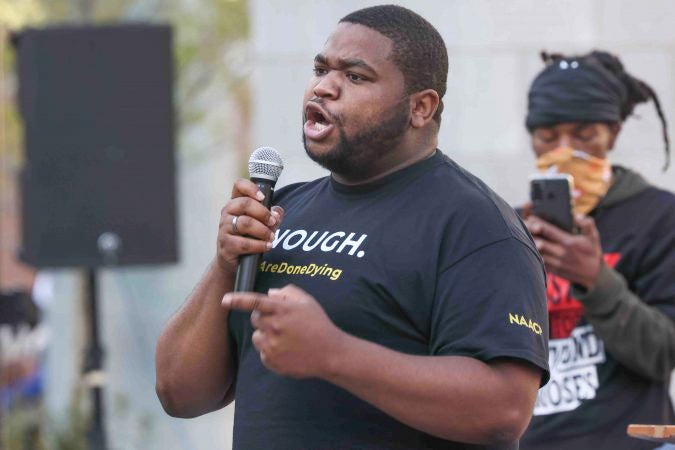
Coby Owens, who chairs the Delaware NAACP’s task force on policing, said he admires Ray’s passion, tenacity, and leadership.
“When you’re fighting for something you truly care about, you’re going to go all out. And I think that’s what Keandra does. She’s obviously still hurting from the loss of her brother at the hands of police brutality.
“And I think by her outreach and working with other families, that shows that she understands that this movement isn’t just about her one family. It’s about the overarching system that has allowed police to abuse that and kind of take advantage.”
Ray has become a community force, Owens says.
“While people may not be happy about some of the tactics she uses, I think they’re necessary to bring about change,” Owens said. “They’re necessary to bring forward the stories that they’re trying to tell, and also bring that pressure needed to get that true justice for those loved ones that we’ve lost here in Delaware.”
Ray doesn’t think her efforts have been that productive yet, but pledges to keep fighting.
“No, I don’t feel like anything is accomplished,’’ she said. “I feel as though the only time the government or state pays attention to anything that we’re doing as far as protesting or anything is if it’s like rioting or looting. Then they budge just a little bit, but like a centimeter.”
 WHYY is one of over 20 news organizations producing Broke in Philly, a collaborative reporting project on solutions to poverty and the city’s push towards economic justice. Follow us at @BrokeInPhilly.
WHYY is one of over 20 news organizations producing Broke in Philly, a collaborative reporting project on solutions to poverty and the city’s push towards economic justice. Follow us at @BrokeInPhilly.

Get daily updates from WHYY News!
WHYY is your source for fact-based, in-depth journalism and information. As a nonprofit organization, we rely on financial support from readers like you. Please give today.



